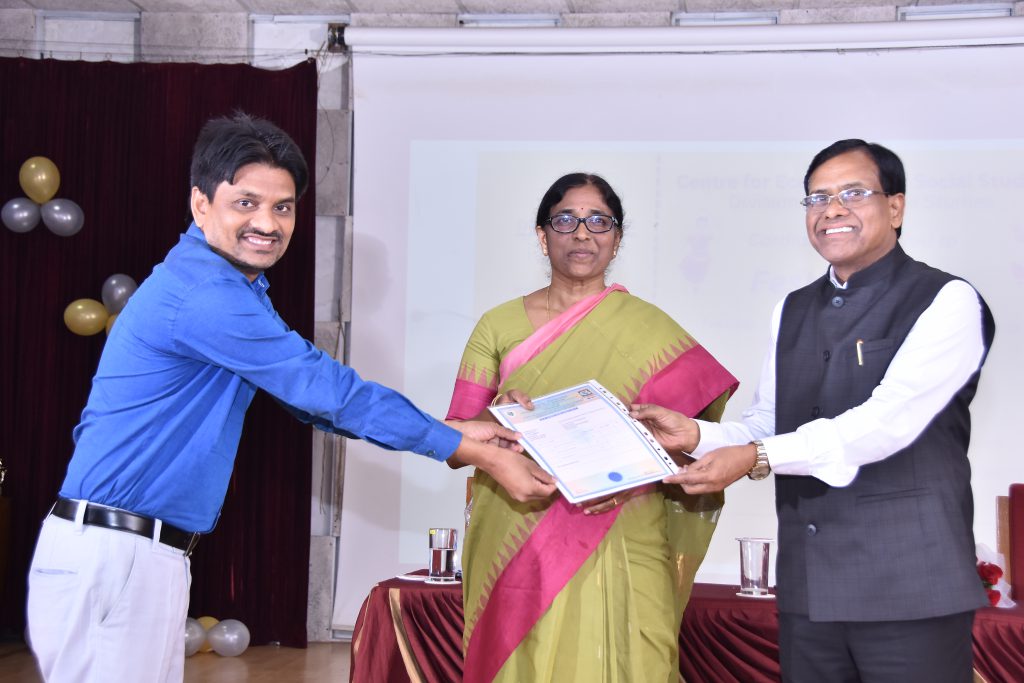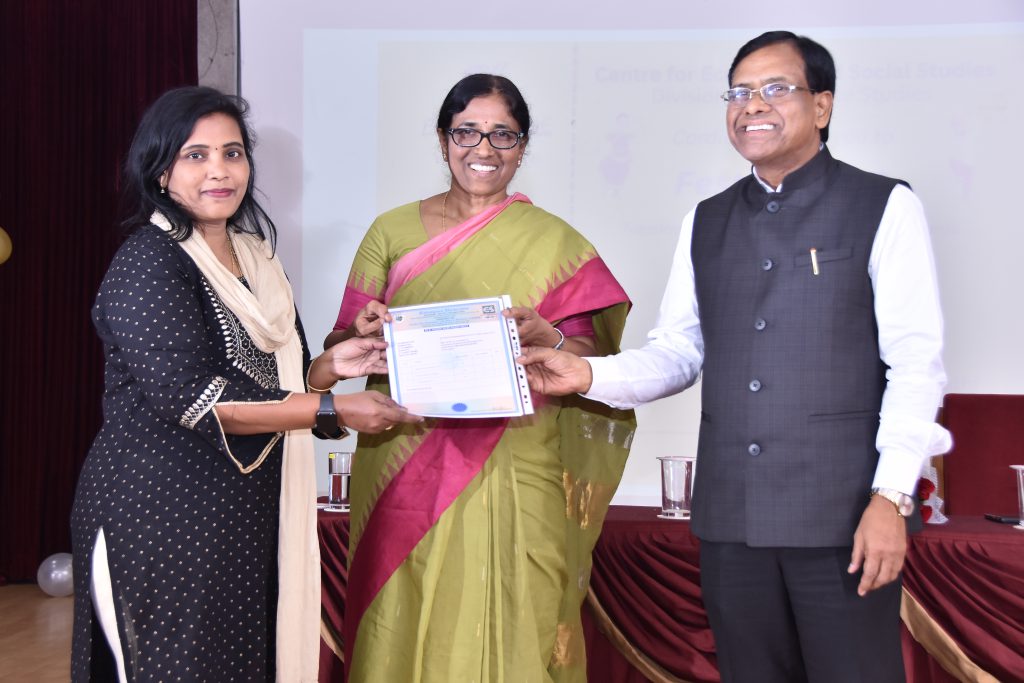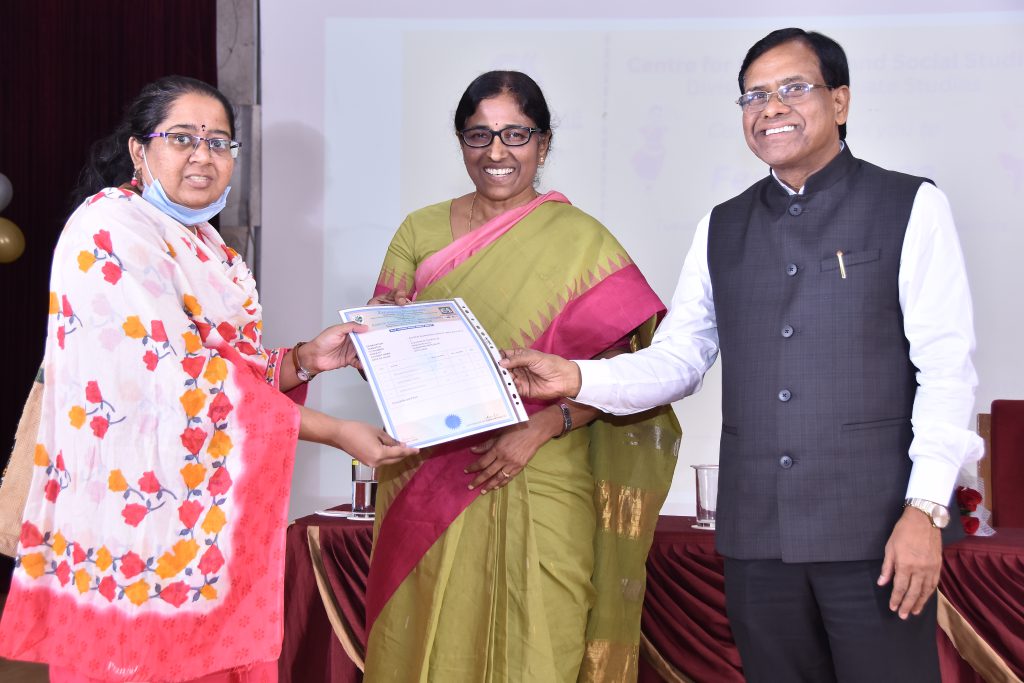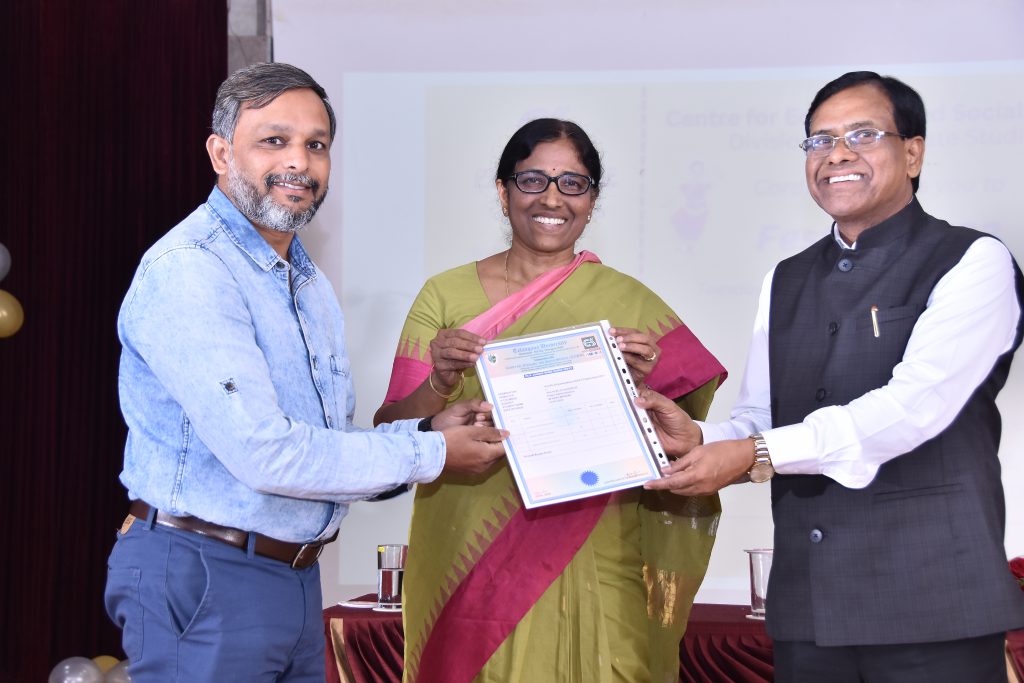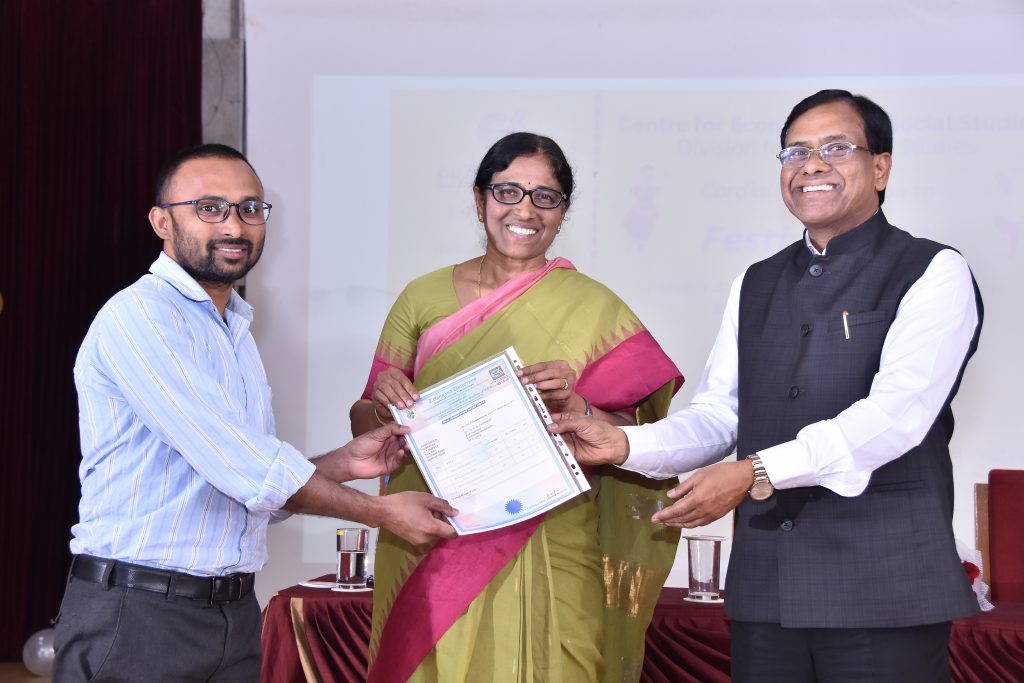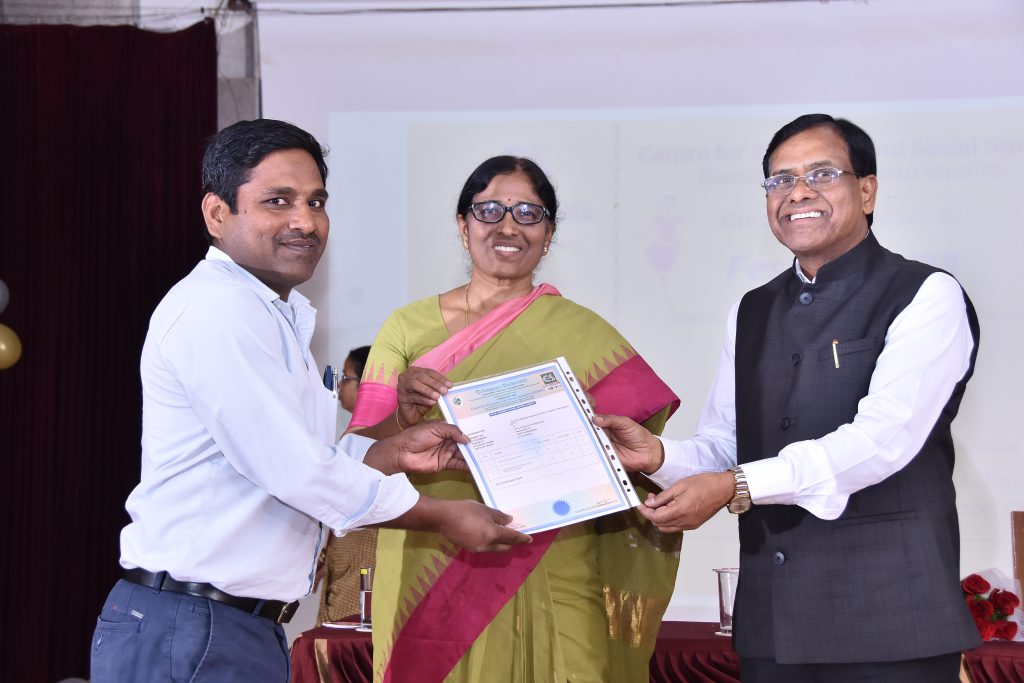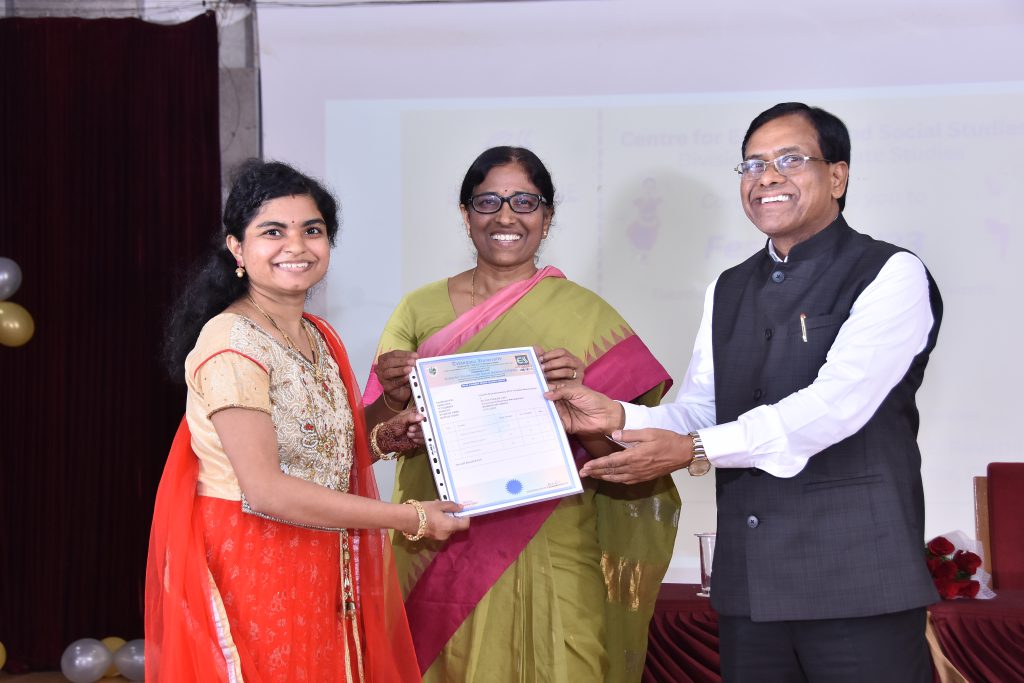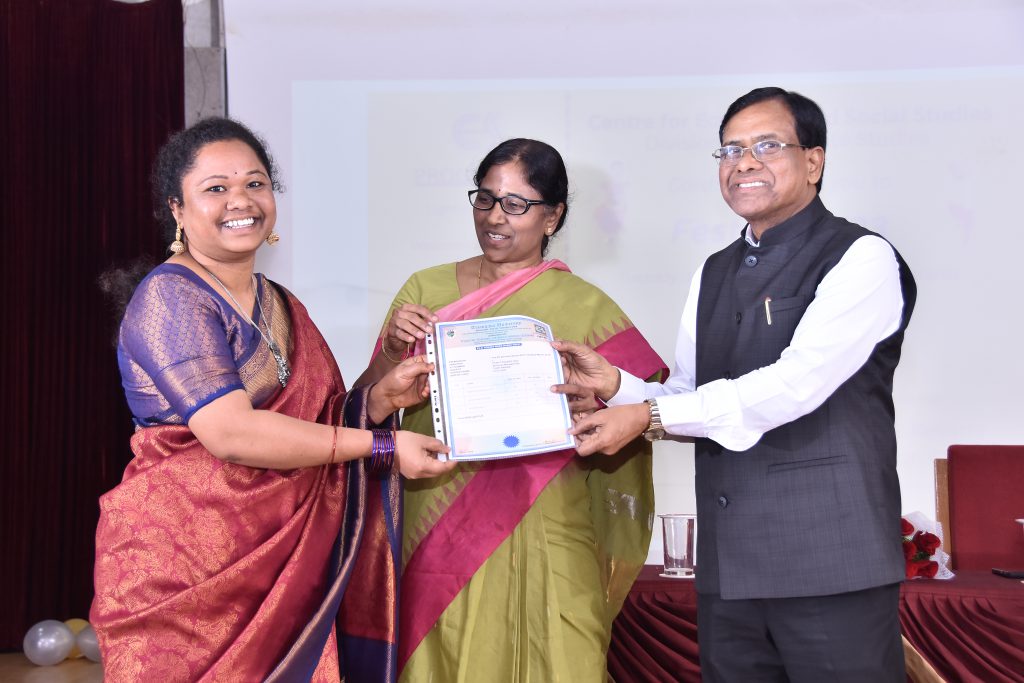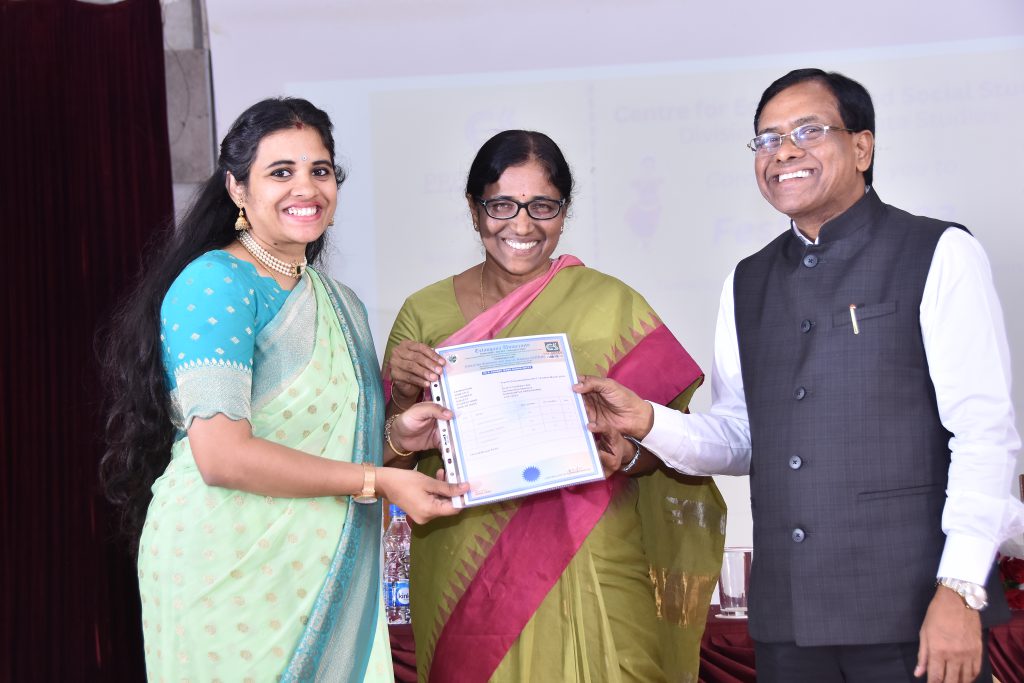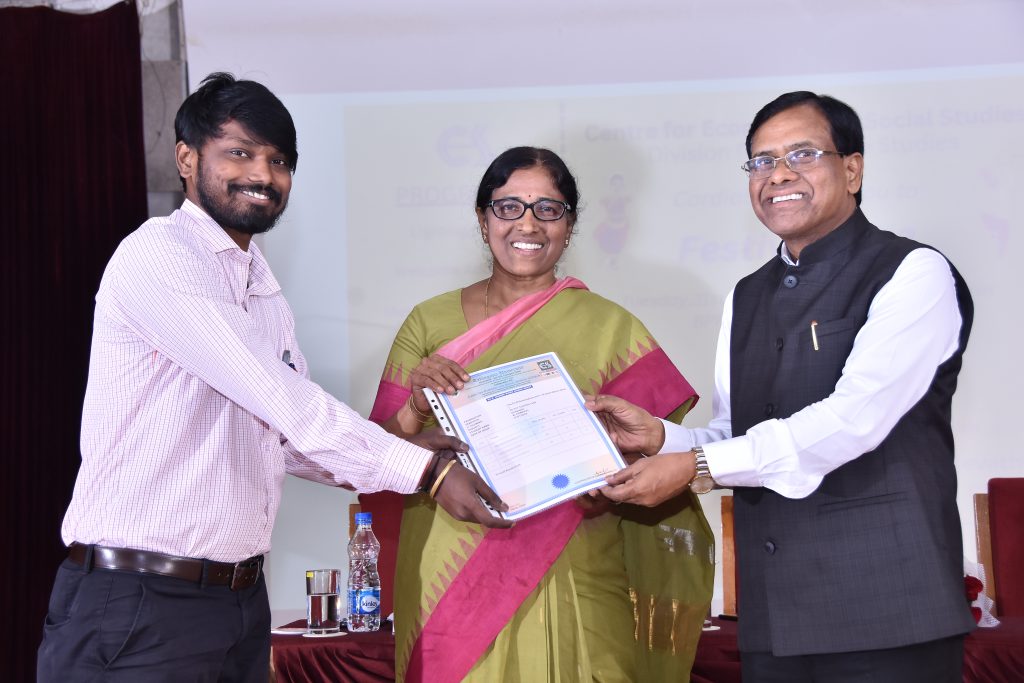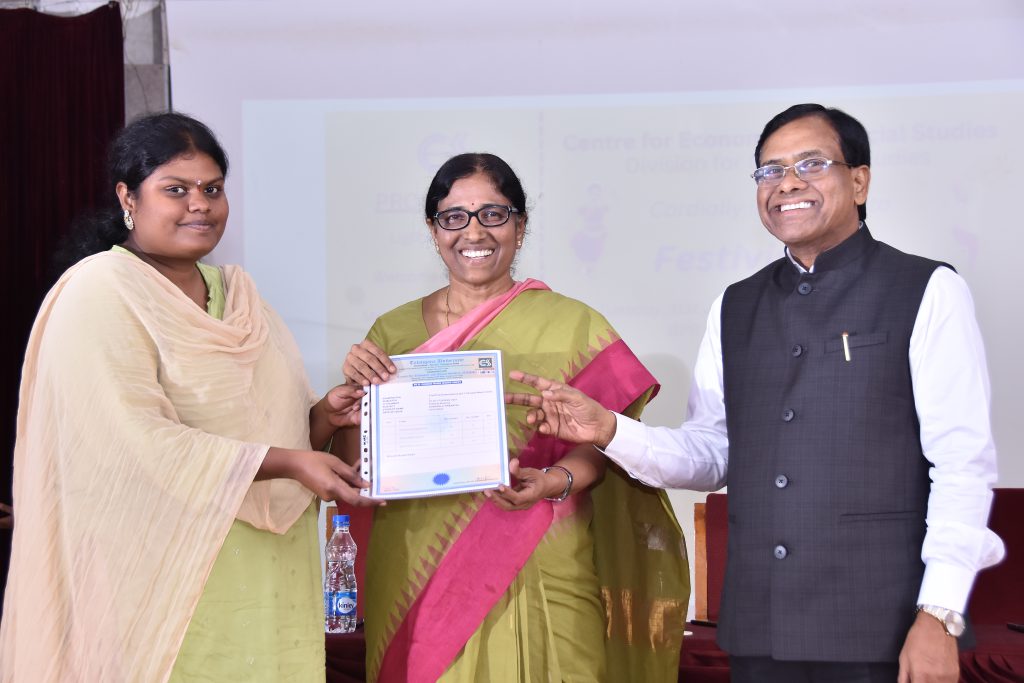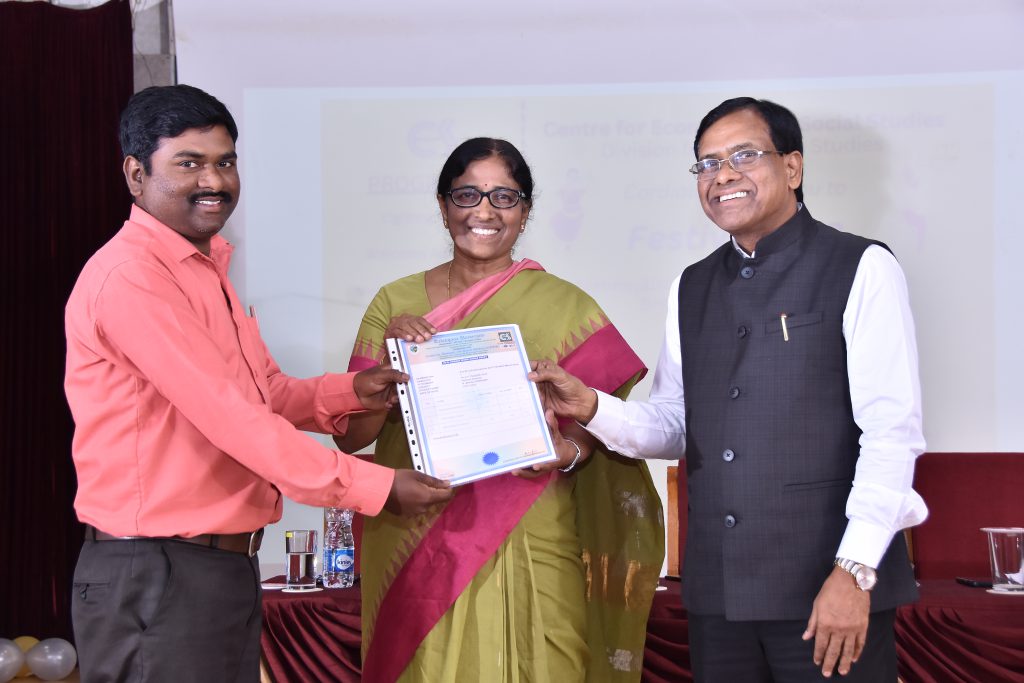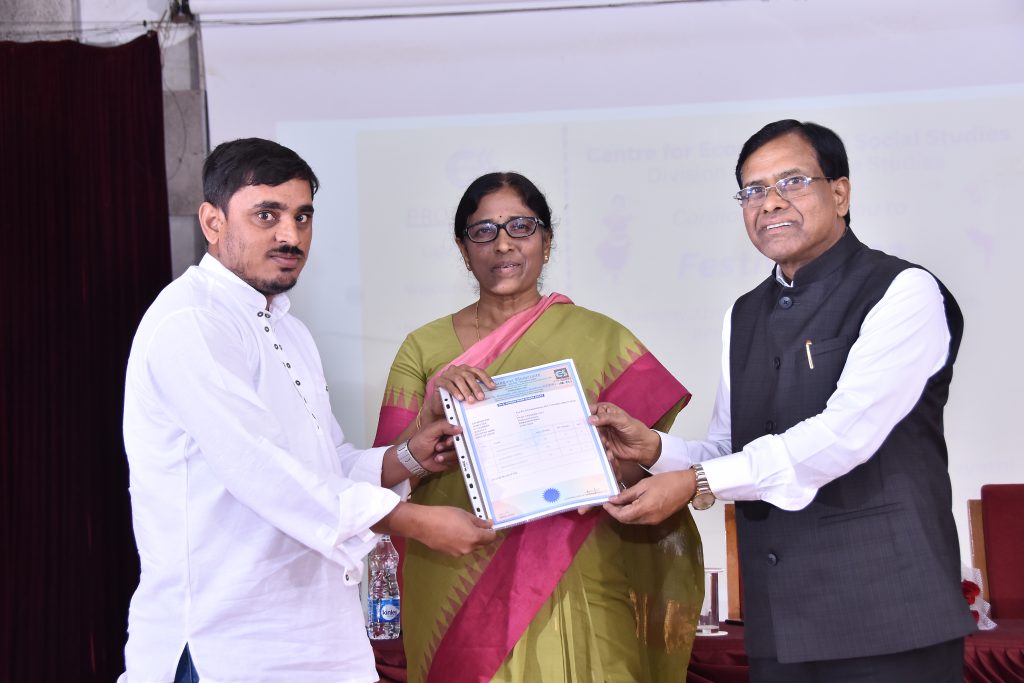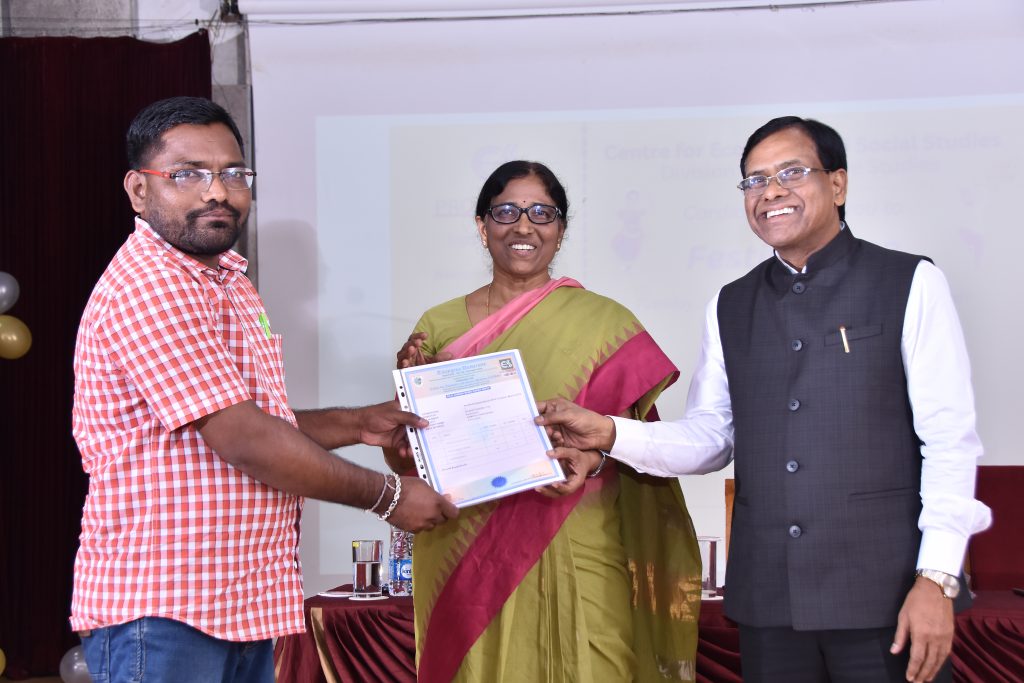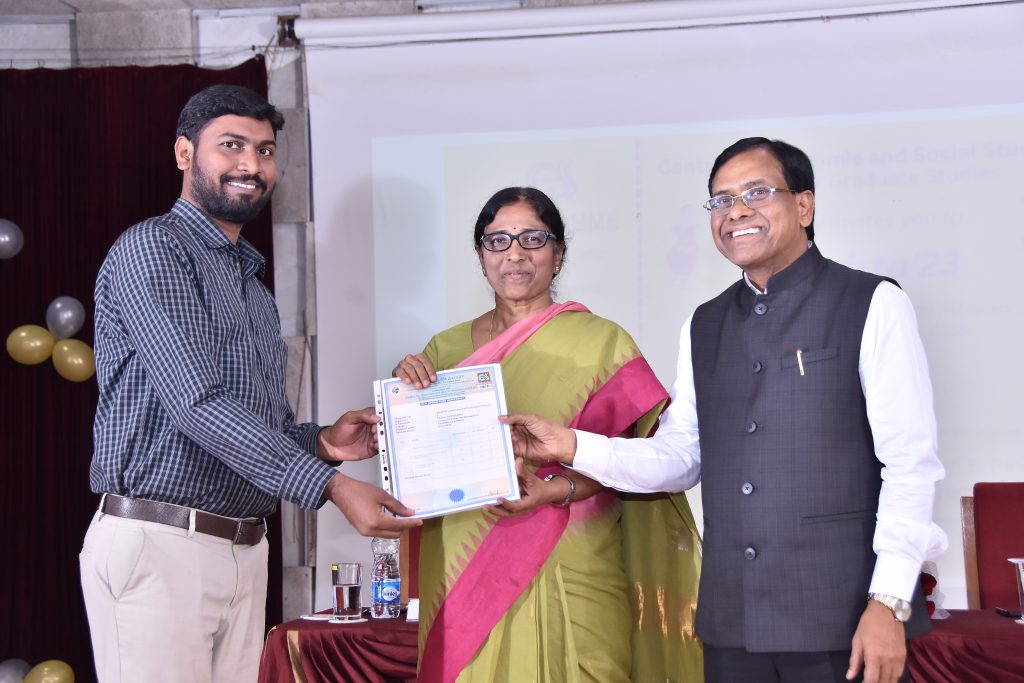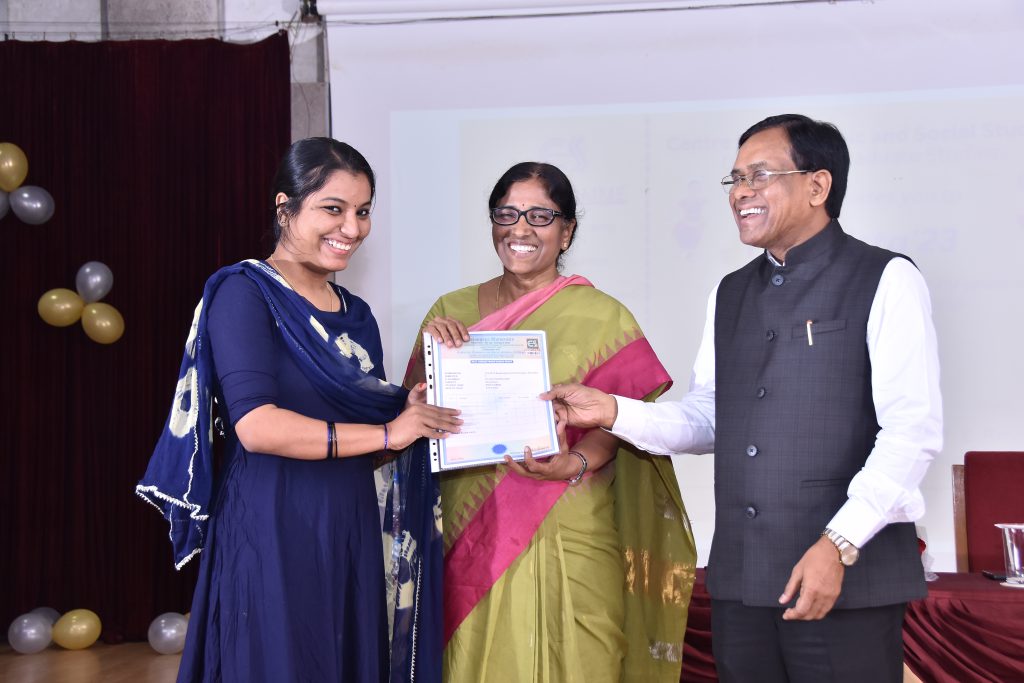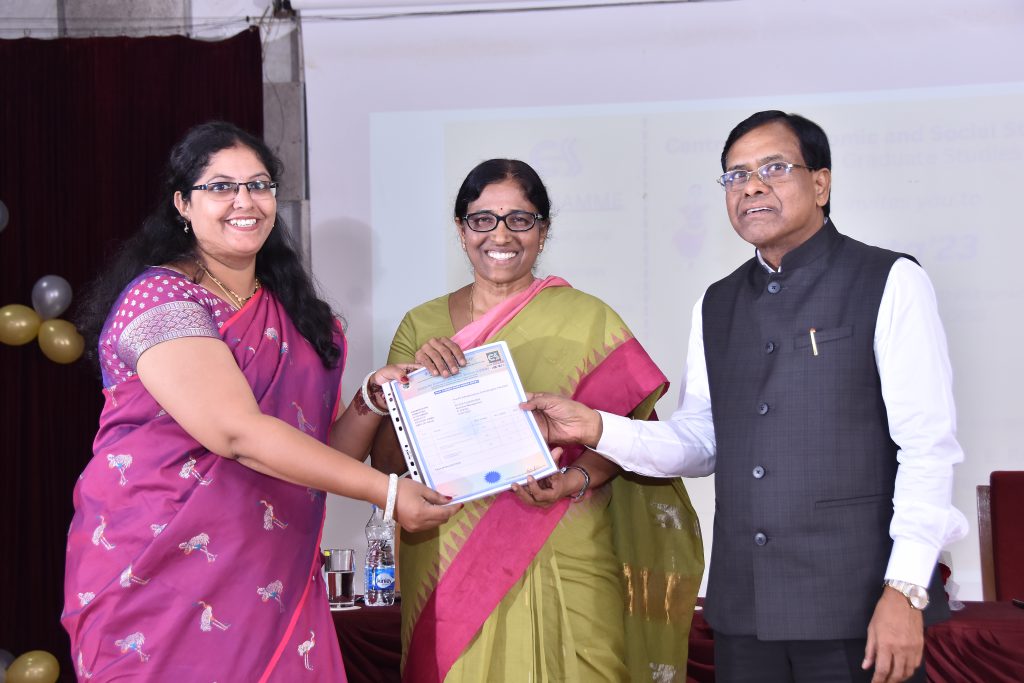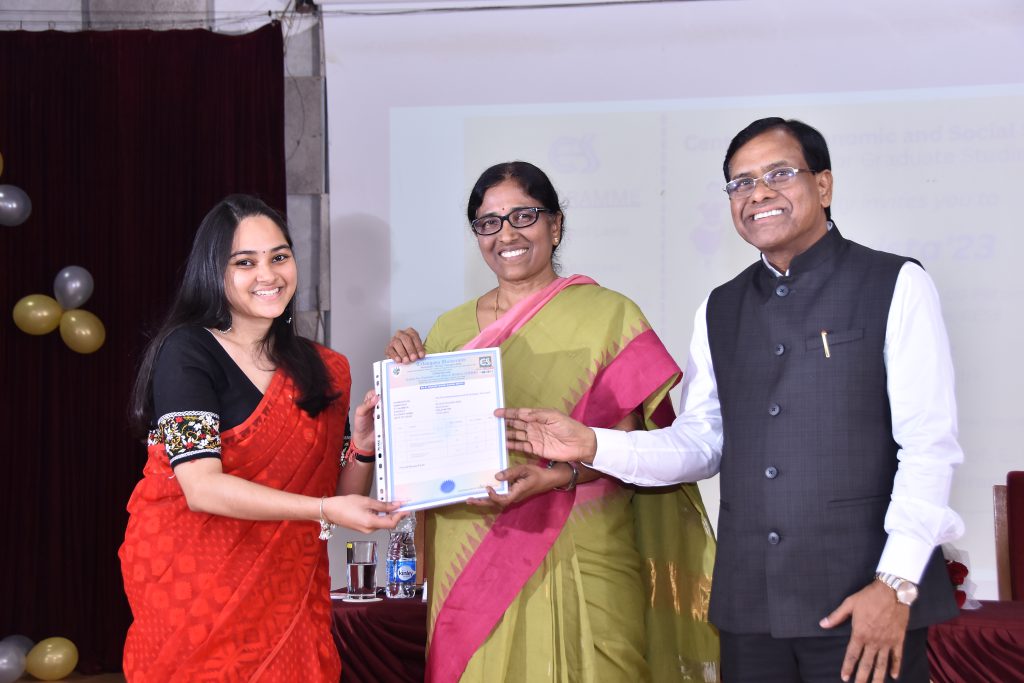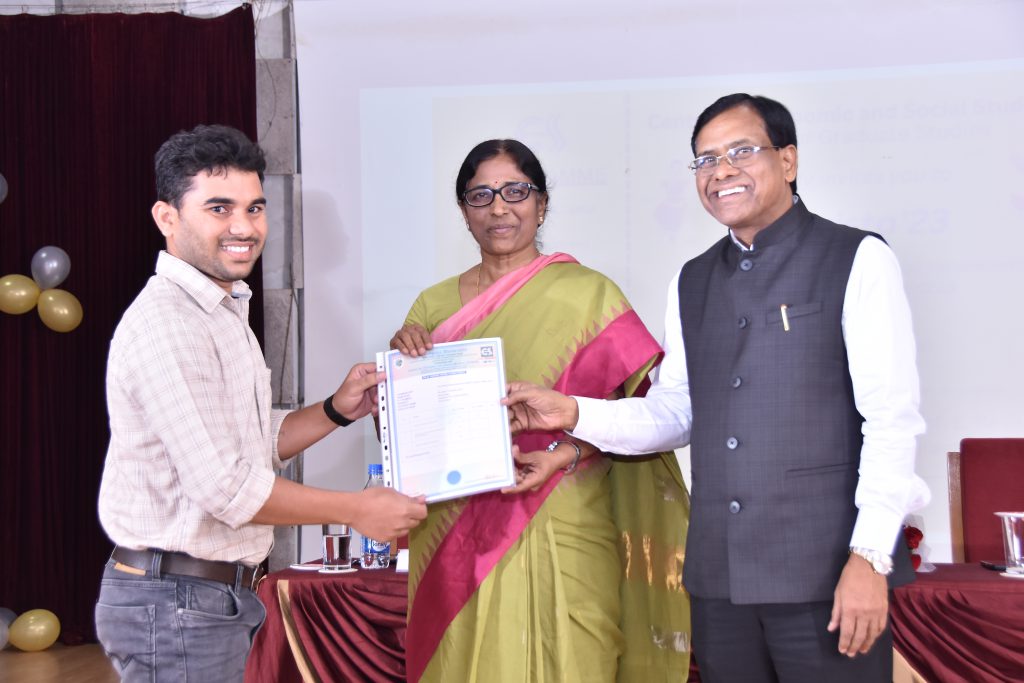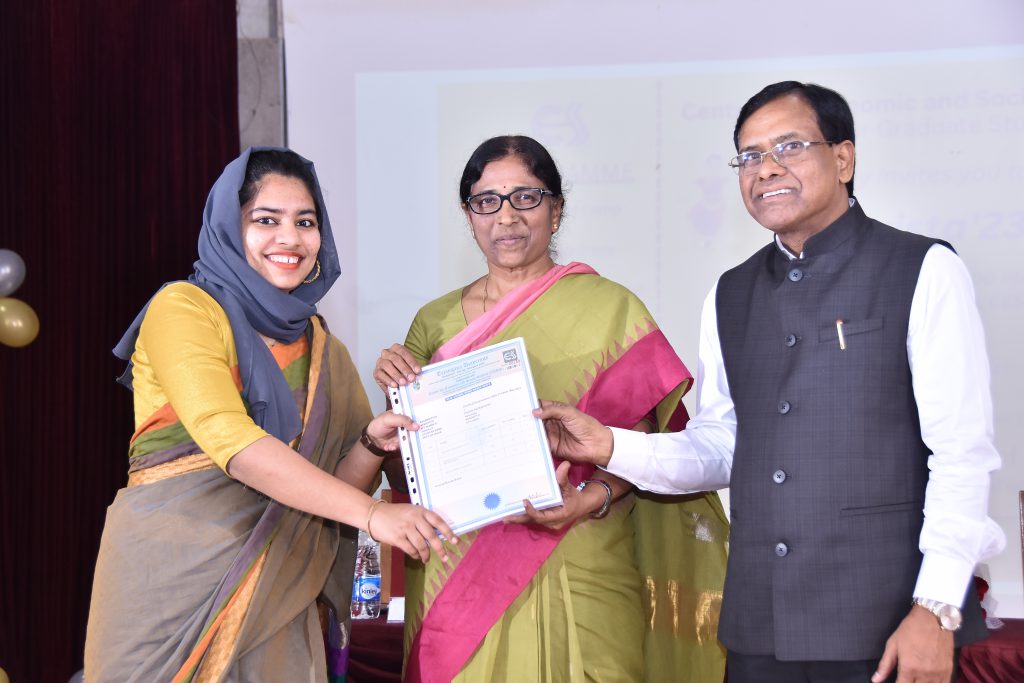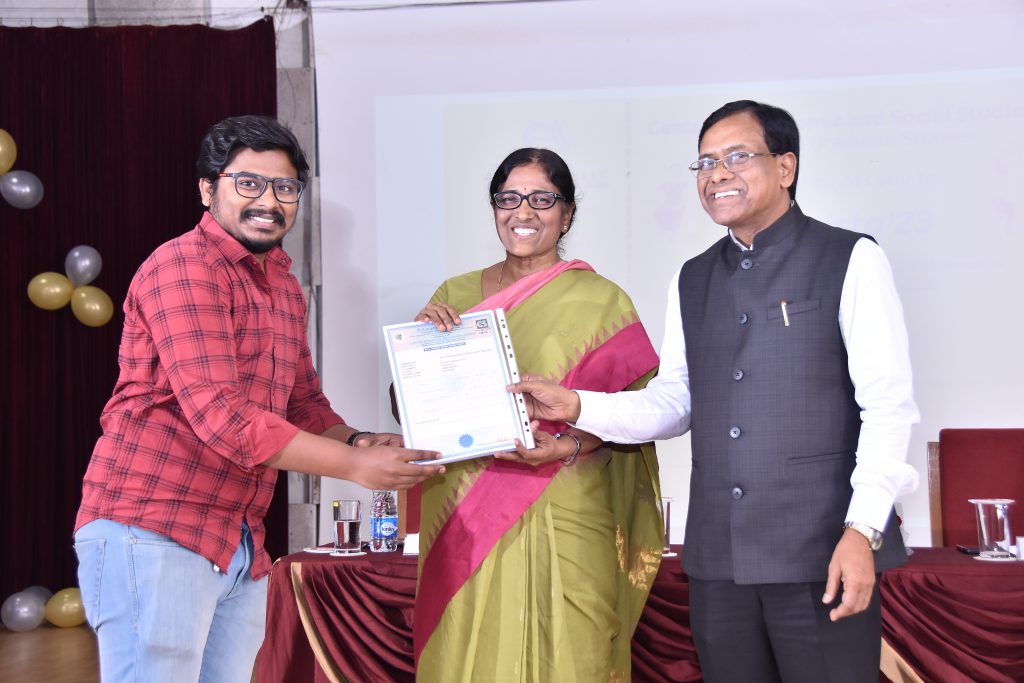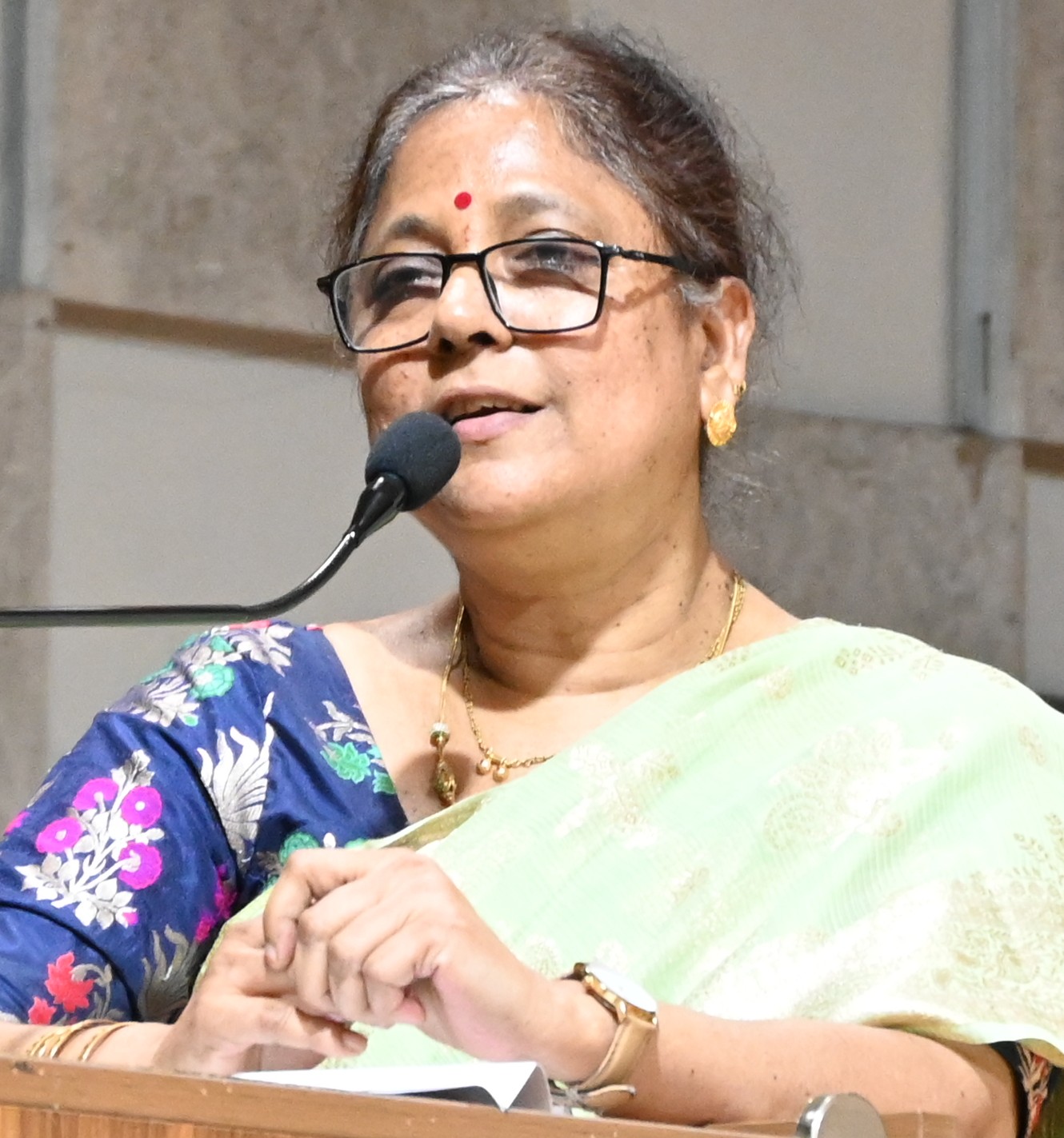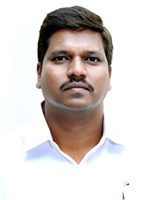Division for Graduate Studies
Current Events
Special Lecture on Transformative Urbanization Towards India 2047
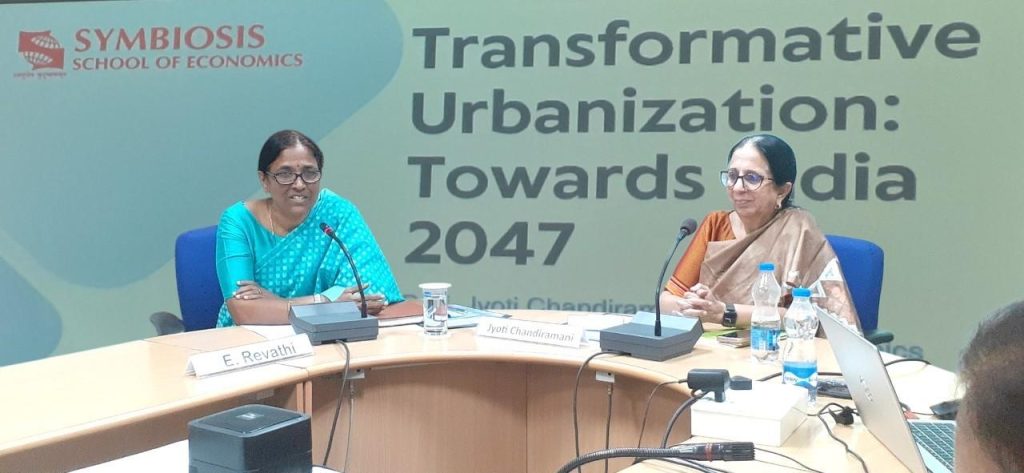



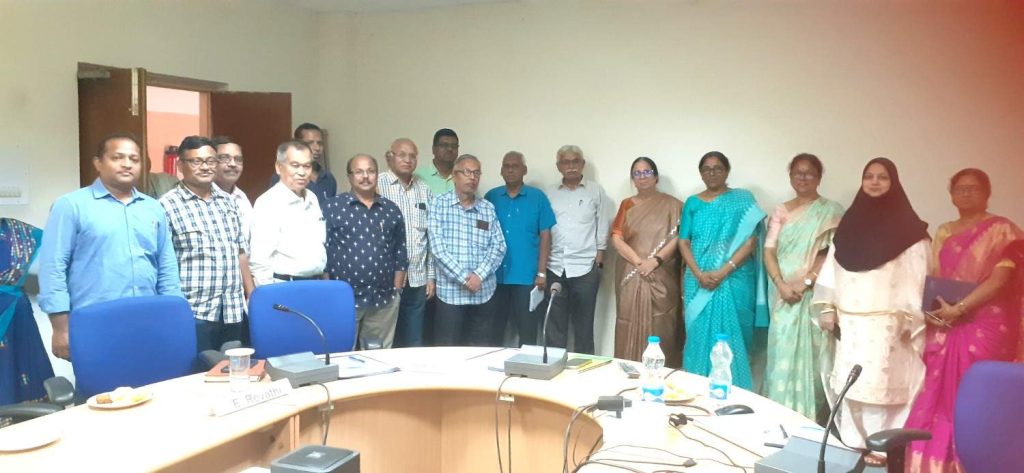
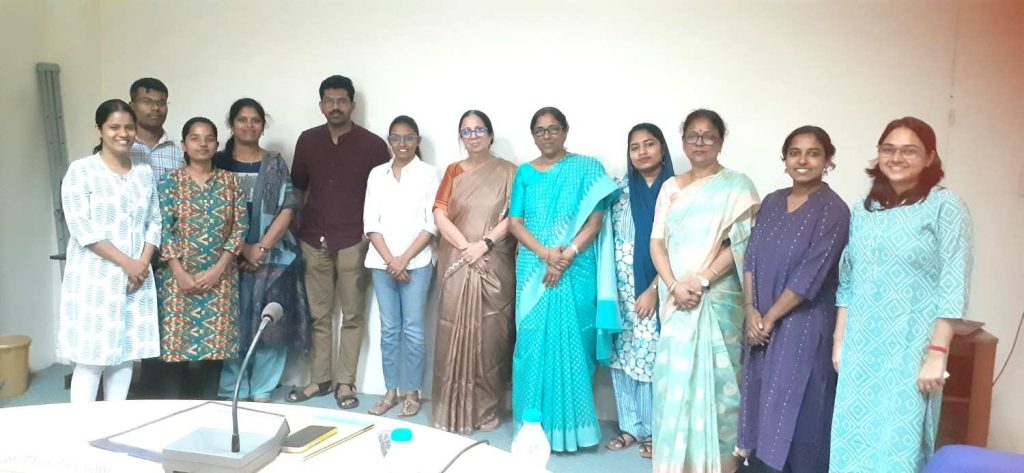
On 14th November 2024, the Division for Graduate Studies (DGS) at CESS hosted a special lecture delivered by Prof. Jyoti Chandiramani, Director of the Symbiosis School of Economics. Dr. Alivelu Kasturi, Dean of DGS, introduced the distinguished speaker and invited the CESS Director, Prof. E. Revathi, faculty, and scholars to participate. The program was chaired by Prof. E. Revathi.
Prof. E. Revathi highlighted cities as pivotal drivers of economic growth while addressing urban poverty and the rural-urban divide. She emphasized the need for a multidisciplinary approach to tackle administrative challenges in mega and smart cities while managing sustainable development. Referring to Hyderabad’s historical significance as India’s fifth-largest city, she noted the issues of unemployment caused by migration.
Prof. Chandiramani discussed urbanization’s transformative role in fostering economic growth, focusing on poverty, inclusion, water and power infrastructure, and the transition to inclusive growth with livability. She emphasized the importance of amenities like Har Ghar Jal, roads, electricity, and multidisciplinary research in achieving sustainable urban environments.
She also explained global urban growth trends, noting that structural transformations have already occurred, as seen in the COVID-19 period’s reverse migration. Despite industries becoming more productive yet less labour-intensive, she stressed the need for enhanced productivity and planning.
She highlighted the exponential growth of the Indian stock market, reflecting a shift of funds from banking to capital markets. Prof. Chandiramani emphasized that well-managed cities are like efficient organizations, making good use of resources, improving livability, and ensuring fairness.
She praised the progress in providing water to slums in Pune, where water is now supplied on time, even if some housing societies face delays. This is seen as a positive step, prioritizing marginalized communities.
Prof. Paul Romer, a Nobel laureate economist, emphasized the importance of cities in fostering cooperation and helping individuals connect with the right people and ideas. He proposed a cost-effective urban planning approach called “Making Room,” focusing on planning for urban expansion.
She said that people are drawn to cities because of factors like jobs, education, and livelihoods. Creating cities is important, and she pointed out that South Korea successfully built the smart city of Saundo. However, she mentioned that in China, “ghost cities” face problems because people are not moving to them. She emphasized that cities are not created by force; people only move to cities when they need to. Ultimately, she said, people make cities, not the other way around.
She also discussed India’s urban dynamics, highlighting Pune’s expansion through its municipal corporations, Hyderabad’s metropolitan growth across districts, and Amaravati’s potential as a future metropolitan region.
She said that if we don’t start planning now for 2047, we’ll face more destruction and climate disasters, leading to costly rebuilding. It’s crucial to act now. She referred to Jane Jacobs in the book Cities are a Wealth of Nations (1984), where it’s stated that cities are engines of growth, with urban populations contributing 80% of global GDP. She also pointed out that a country’s economy grows through urbanization. According to an IIHS paper (2013), India’s top 10 cities account for almost 8% of the population, generate 15% of economic output, and occupy only 0.1% of the land. She highlighted that unplanned, unsensitized, and poorly informed interventions, driven by corruption between officials and bureaucrats, have created this problem. People and cities are suffering, and it’s shocking how people continue to live in toxic environments, such as the poor air quality in Delhi. She also mentioned that with 55% of the world’s population living in urban areas (projected to be 68% by 2050), cities are at the forefront of Sustainable Development Goals implementation. Urbanization brings challenges like overcrowding, pollution, housing shortages, and inequality, but it also offers opportunities for innovation, economic growth, and efficient resource use.
The lecture concluded with a vote of thanks delivered by Dr. Ch. Krishna Rao.
Inaugural Session of the Ph.D. Induction Programme for the 2024-2025 Batch at CESS
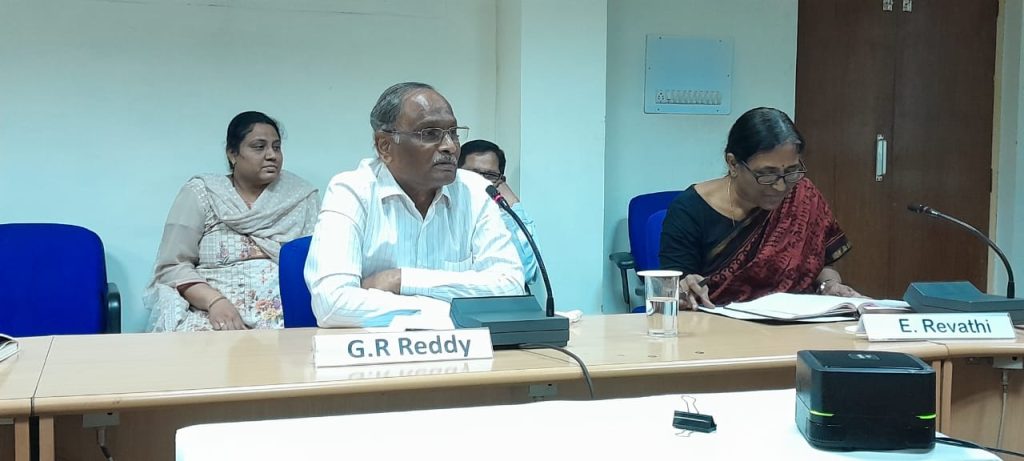
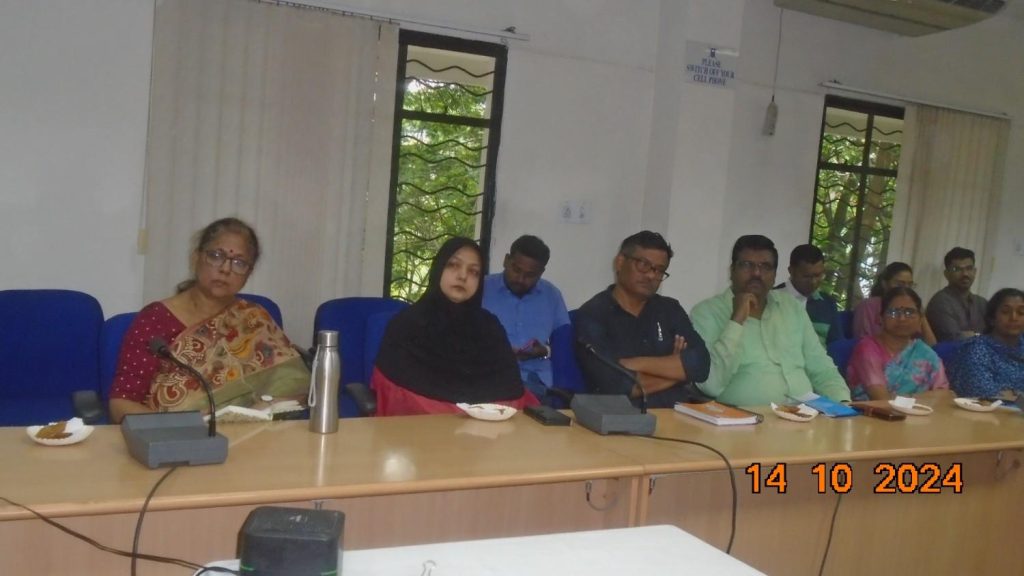
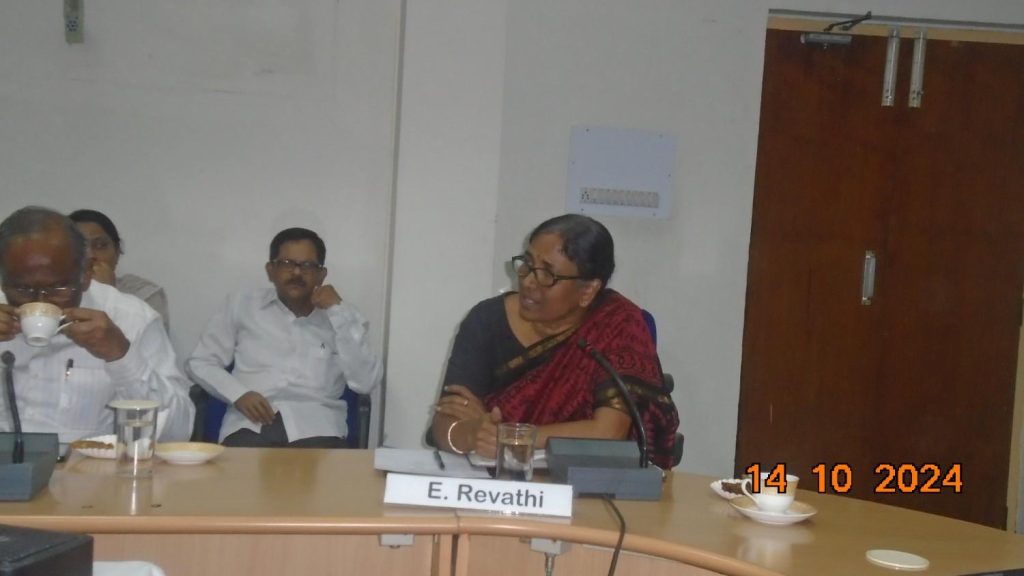
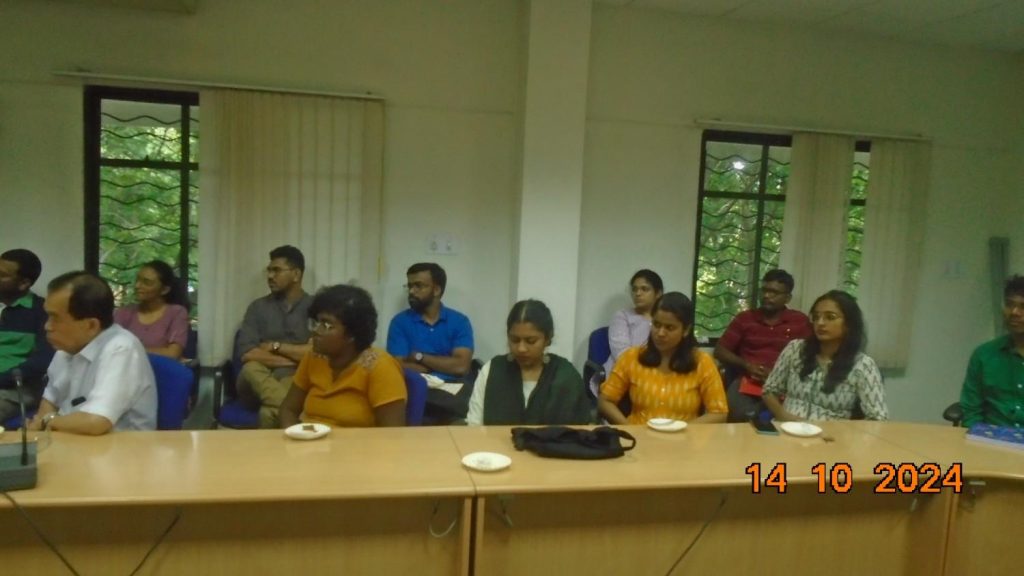
The Ph.D. Inaugural Session for the academic year 2024-2025 was conducted on 14th October. The Centre for Economic and Social Studies (CESS) organizes Ph.D. programme with a focus on Development Studies in collaboration with Telangana University. The session began with a welcome address by Dr. Alivelu Kasturi, Dean of DGS, setting the tone for an engaging and insightful programme. This is followed by an introduction of the cess faculty and research scholars.
The Inaugural address was given by Prof. Nachane Chairman CESS, Dr. G.R. Reddy gave a message, Prof. Revathi Director CESS spoke about the research programme.
Prof. E. Revathi, Director of CESS, provided an overview of the Ph.D. programme, the earlier Ph.D. programme with Ambedkar Open University and the current fulltime Ph.D. programme. She emphasized the importance of the Regular Ph.D. Programmes at CESS and elaborated on the coursework, detailing the Curriculum in the two semesters. She also outlined the structure of research projects and highlighted the inclusion of two essential workshops focusing on writing skills, including proposal writing, article preparation, SPSS and STATA workshops. She emphasized these workshops will support students in preparing assignments and presentations throughout their academic journey.
Prof. D. M. Nachane, Chairman of CESS, welcomed the new Ph.D. aspirants and stressed the importance of mastering the methodology of their chosen subject. He focused on axiomatic science, natural science and social sciences. He explained how the Scientific Method is applied to social sciences, beginning with Exploratory Data Analysis and proceeding to hypothesis formulation. He also touched on key areas of Mathematical and Experimental Economics, referencing critical issues such as Farmers Suicides in Maharashtra, Telangana, and Andhra Pradesh. Prof. Nachane advised students to choose research topics of state-level importance and cautioned against selecting overly difficult subjects. He also underscored the significance of understanding the distinctions between a thesis, paper, and project, and highlighted the value of Econometrics, SPSS, and the availability of data in conducting meaningful research.
Dr. G. R. Reddy, Founder Member of CESS, provided a reflective message, focusing on the Challenging Journey of pursuing a Ph.D. He emphasized the need for passion in research, urging students to be dedicated to Reading and Hard work while ensuring their research is socially relevant. Dr. G R Reddy also encouraged students to consult domain experts across various fields and highlighted the importance of Field studies in improving the quality of their research.
The event concluded with a vote of thanks from Dr. Ch. Krishna Rao, marking the beginning of an exciting academic journey for the new scholars.
Scholar's Panel Discussion on the topic "Economic and Political Milestones in India's Growth Story"
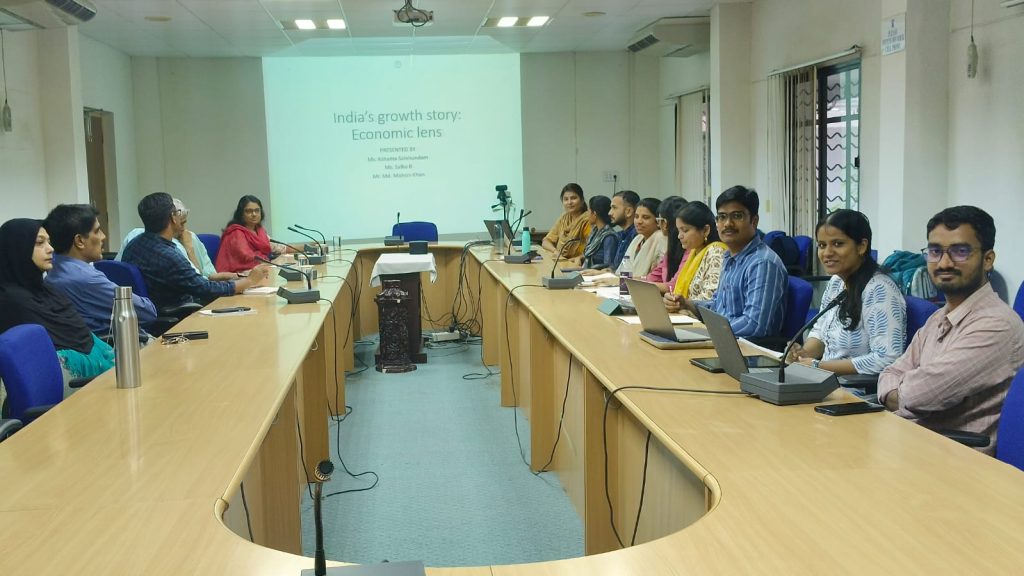
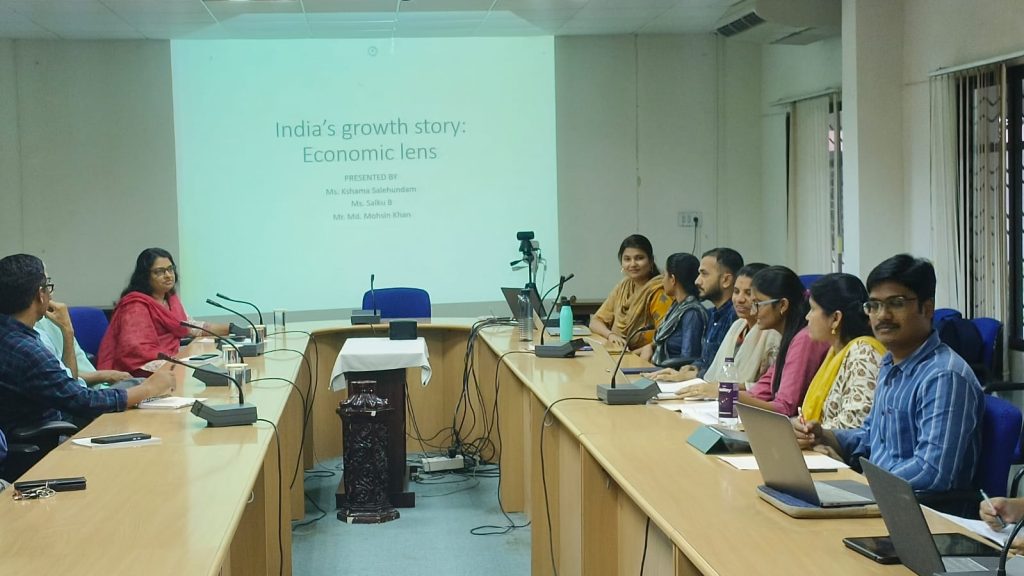
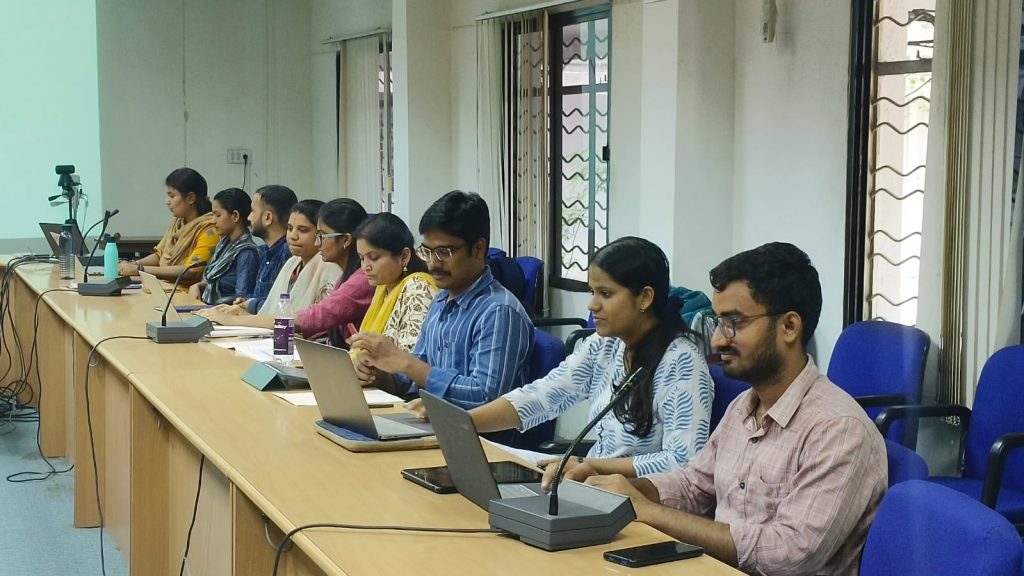
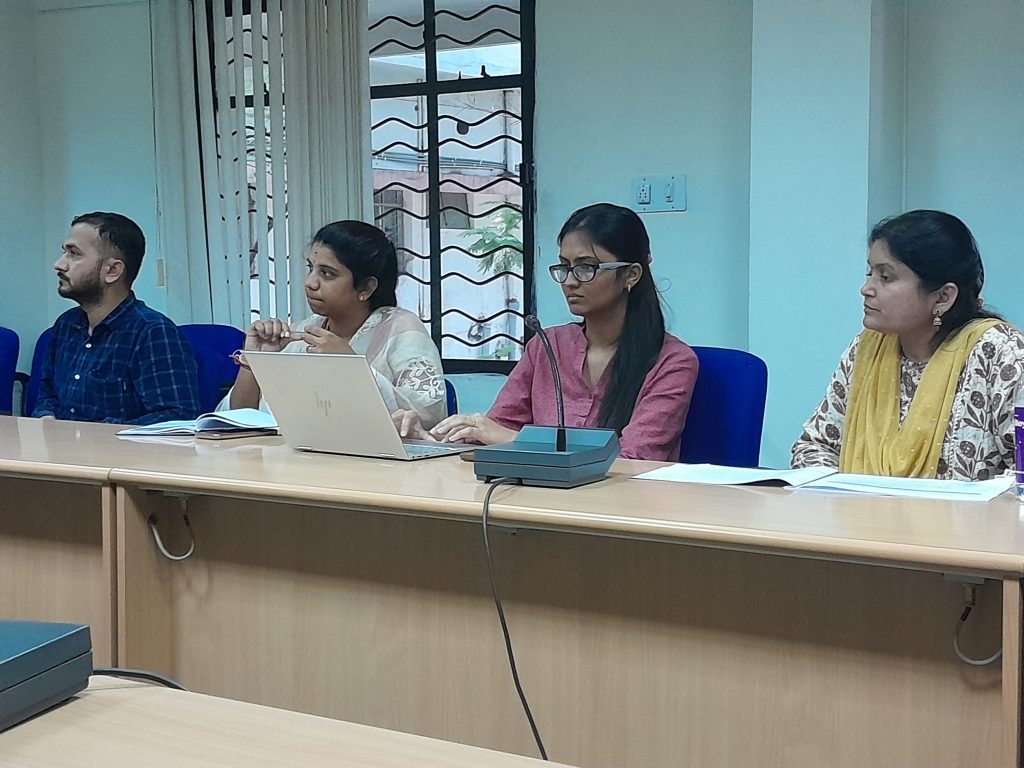
The research scholars of CESS participated in a discussion session / presentation on “Union and State Budgets of 2024-25”
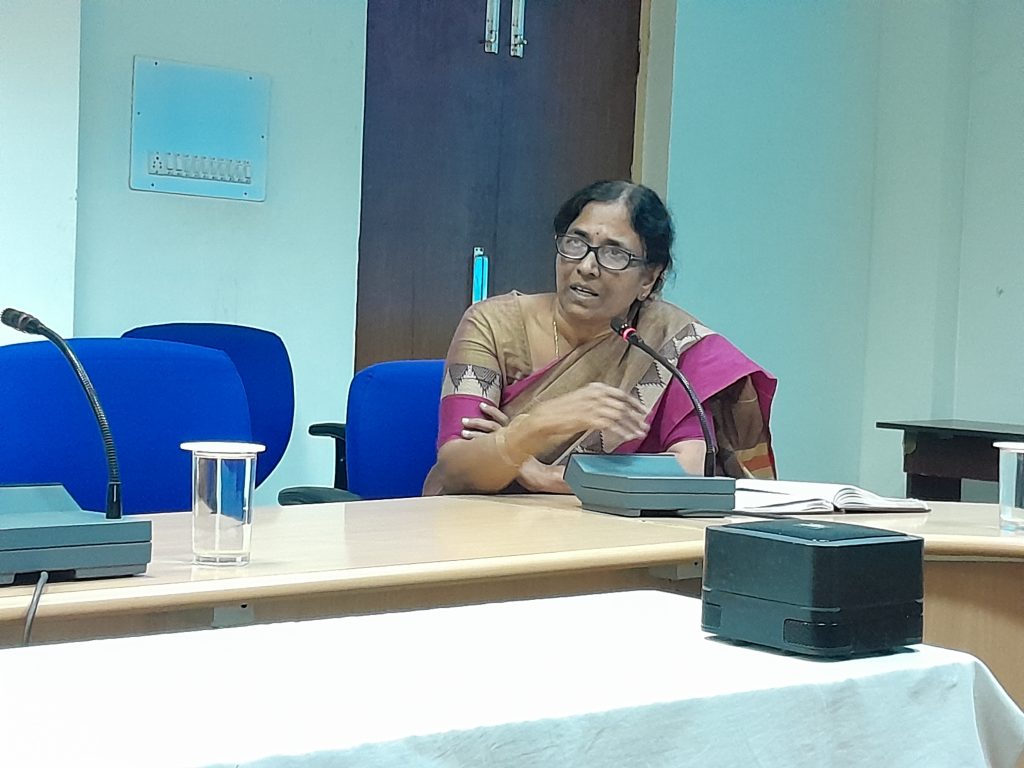
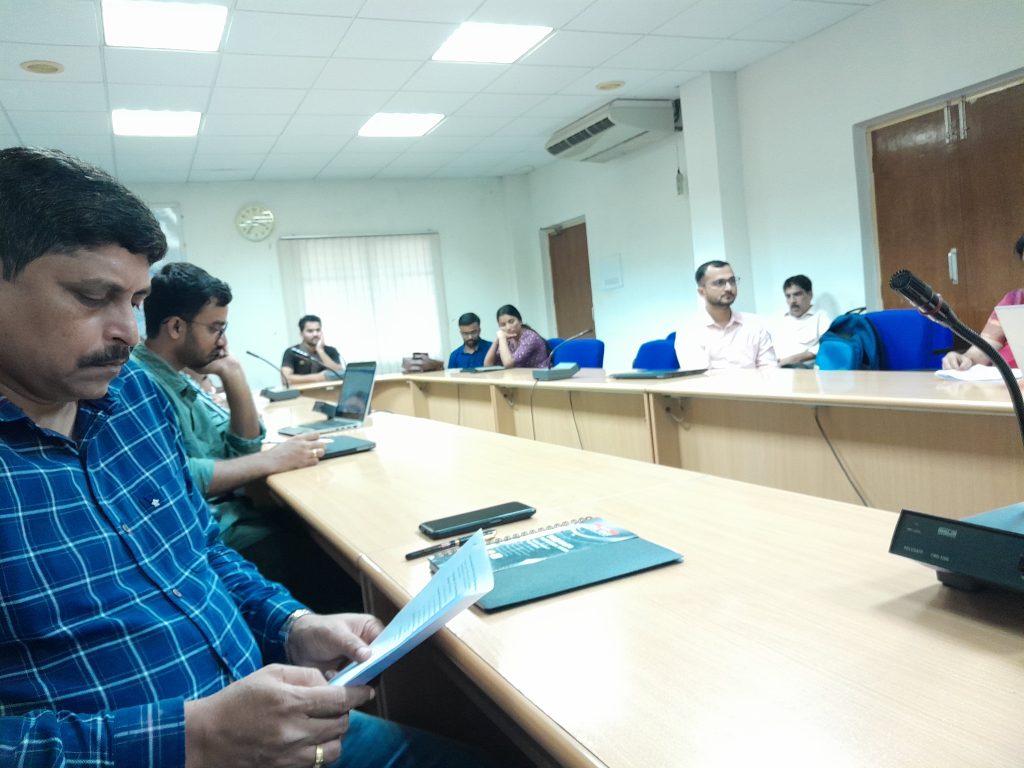
1. Durga - Income Tax & Corporate Tax 2. Mohsin - Minority Affairs 3. Ananya - Energy 4. Nimisha - Women Empowerment 5. Salku - Agriculture in Telangana State's Budget 6. Kshama - Agriculture 7. Bharat - Environment 8. Sujatha – Health; and 9. Vishwadeep - External Affairs
Prof. Dilip M Nachane, Chairman, CESS delivering keynote address on inauguration of Ph.D 2023-24 batch.
DGS conducted a session on Tests of Significance - Non-Parametric Methods by Prof. S Subrahmanyam
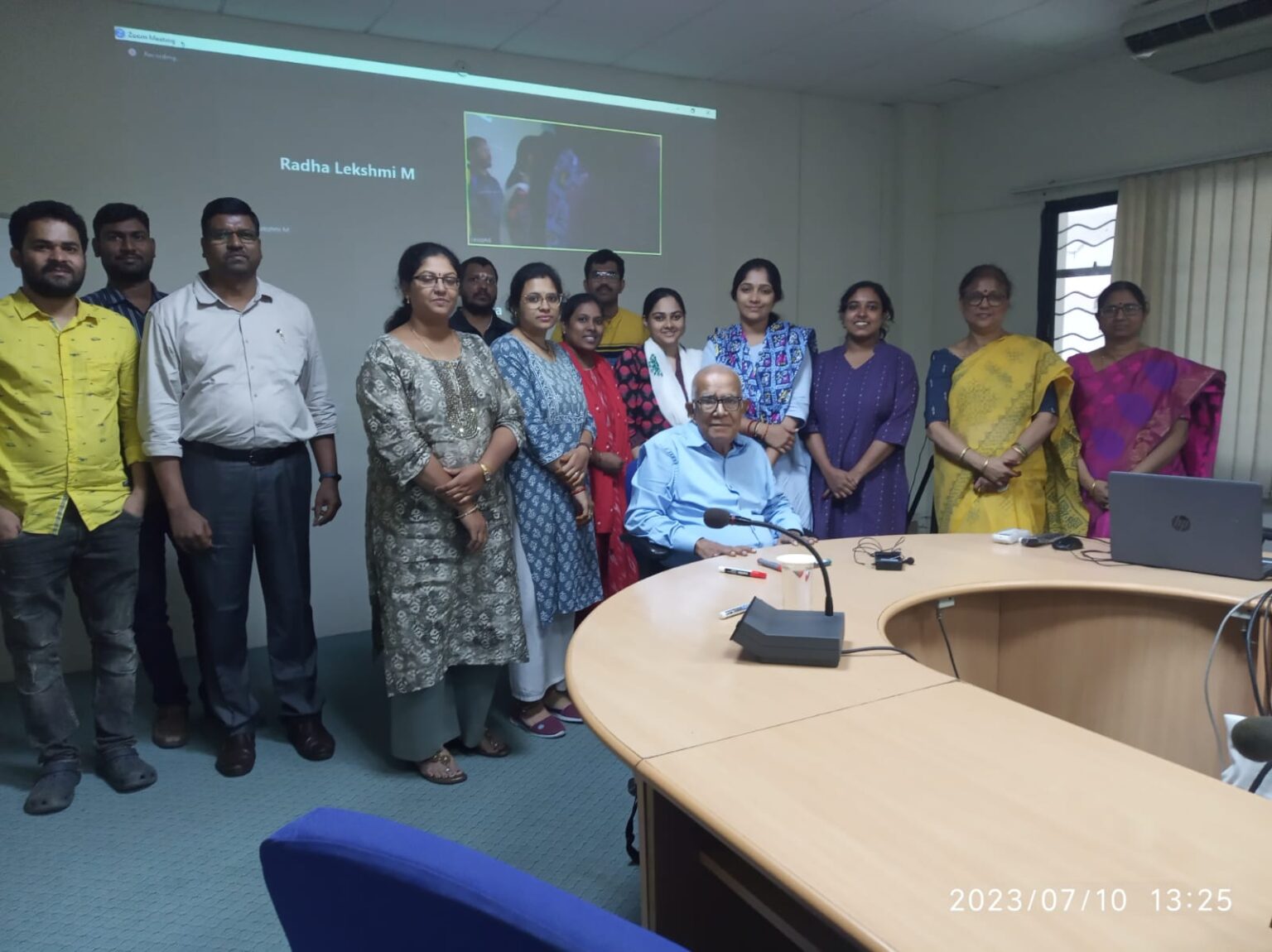
Interaction Session of CESS PhD Scholars with the Oxford University Scholars
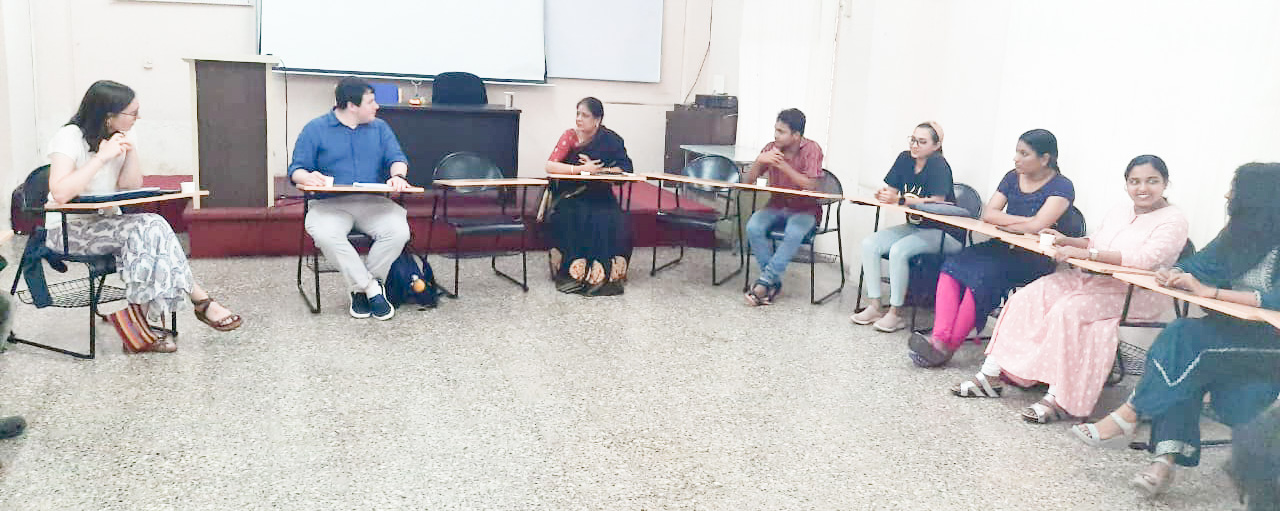
M.Phil / Ph.D Programme
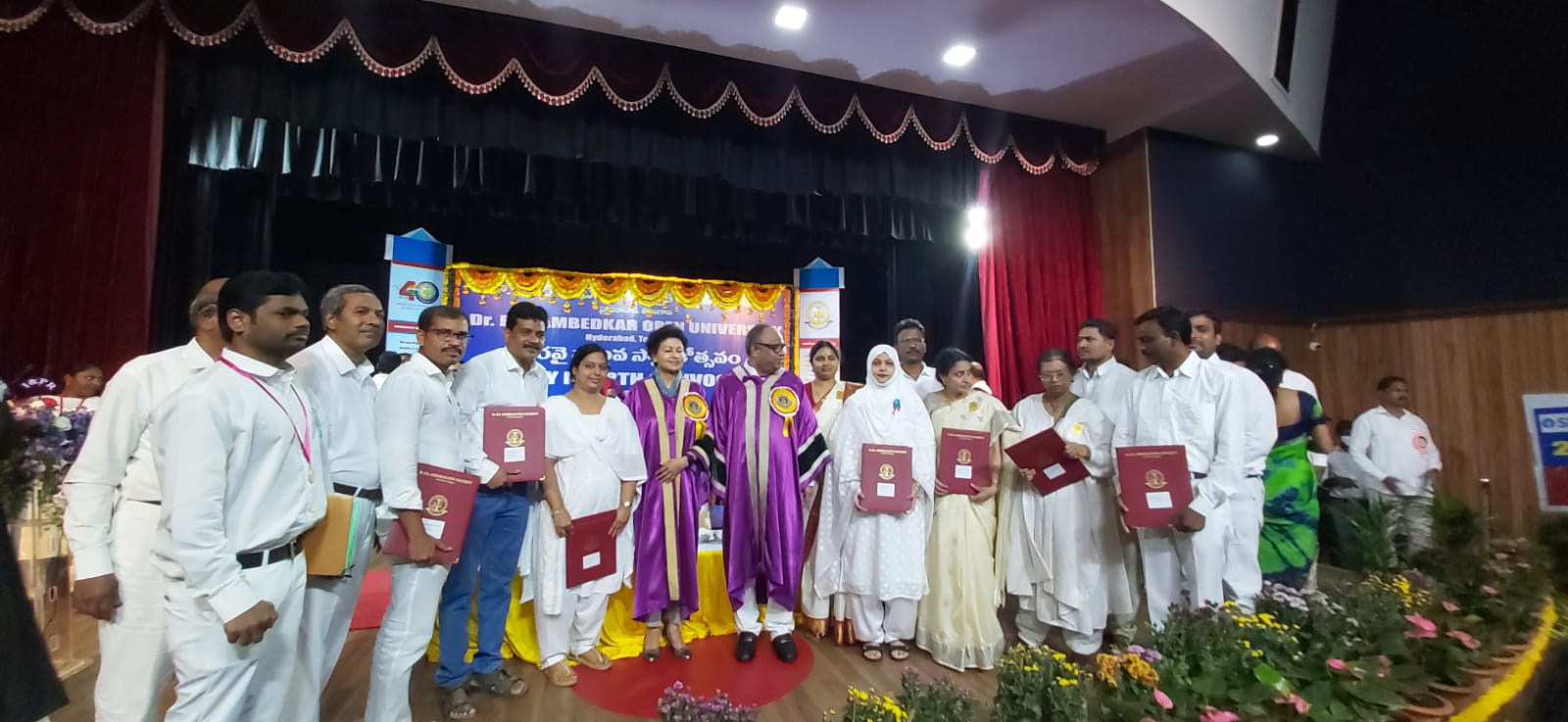
PhD Programme
CESS has entered into a memorandum of understanding (MoU) with Telangana University, Nizamabad in 2016 to conduct a full-time research programme leading to Ph.D. degree in development studies. Along with the subjects offered for the part-time programme.
The Ph.D. programme is offered under the overall supervision and guidance of a Research Programme Committee (RPC). The Director, CESS is the Chairman of the RPC and the other members are from Telangana University, CESS and a few eminent academicians as subject experts. The RPC in all its practical purposes acts as academic council in academic matters, and as a managing committee in administrative matters. The RPC would review the programme and would take decisions from time to time to improve the quality of research and evolve the guidelines of the programme. The full-time Programme was inaugurated on 17 October, 2016 by Prof. Amit Bhaduri, Professor at Pavia University, Italy and visiting professor at the Council for Social Development, New Delhi.The Centre (CESS) offers regular Ph.D Programme in Development Studies in collaboration with Telangana University, in the following disciplines/subjects:
Economics
Sociology/Anthropology/Social Work
Geography/Geo-Informatics
Public Administration/Political Science
Statistics (with specialisation in Econometrics)
Commerce & Business Management (related to the research of CESS)
Candidates admitted to the Ph.D Programme have to undergo the course work which is organized in two semesters.
| Semester I | ||
| S.No | Paper | Subject |
| 1 | Paper – 1 | Research Methodology |
| 2 | Paper – 2 | Perspectives and Paradigms of Development |
| 3 | Paper – 3 | Fundamentals of Econometrics/ Fundamentals of Development Statistics |
| Semester II | ||
| S.No | Paper | Subject |
| 1 | Paper – 4 | India’s Development Debate |
| 2 | Paper – 5 | Paradigms in Social Sciences |
| 3 | Paper – 6 | Applied Econometrics/Development Statistics – Applied |
DGS Staff
Research Scholars and their topics - CESS in association with the Telangana University
| Research Scholars and their topics – Telangana University | |
| Batch 2016-17 | |
| Name of the Scholar | Title of The Thesis |
| Mumtaz Begum | Islamic Microfinance – a tool for financial inclusion: a study of Telangana |
| MoulkarRajeshwar | Economic analysis of farm level adaption to climate change in dry land agro-ecosystem climate sensitivity of Telangana |
| DevambatlaVeerabhadra | Consumer Behavior Towards Eco-Friendly Products. A Study on Green Marketing in Telangana |
| Anil Yerupula | Re-Peasantization in Indian Agriculture: A Case of Zero budget natural farming in Andhra Pradesh |
| N. Shankar | A Study of Urban Governance in Warangal Municipal Corporation |
| M.VenuMadhav | Women, water and sanitation Governance: Importance of participation, policy coherence, local self-governments |
| AmarsingMudavath | Conservation and Forest Rights Act: A Case Study of Kawal Tiger Reserve in Telangana |
| Shoeb Ahmed | Social support and mental health: A study of elderly in Telangana |
| Souda Ramesh | A study on child sex ratio in Wanaparthy district: a socio-cultural approach |
| Gattu Ramesh | Causes and Consequences of Child Marriage in Rural Areas: A Study in Jogulamba Gadwal District of Telangana |
| C. Uma Maheshwari | Impact of Goods and Services Tax on Micro and Small Enterprises: A Study on Micro and Small Enterprises of Telangana |
| K. Yadagiri | Quality Dimensions in Higher Education Institutions: A Study of Degree Colleges in Telangana |
| Batch 2017-18 | |
| Mummidi Sri Vidhya | Internationalization of textile sector in India. |
| RanukuntlaSarojasree | Agricultural Growth and Well-being of farmers in India |
| PonnamaneniPadmaja | Export competitiveness of Indian Turmeric- a post WTO analysis |
| M. Kamraju | Spatial and Temporal Growth Pattern of Hyderabad- A Geo-informatic Approach |
| Ramavath. Ravi | Socio-economic and Migration Status of the Lambadis: A Study of Human Rights Perspective in Southern Telangana |
| Ourapalli. Pranathi | Political Participation of Women in Urban Local Governments: A Study of Municipal Corporation in Andhra Pradesh |
| R. Bhanu Prakash | Land Administration Policies and Implementation in Telangana: A Study with Special Reference to Land Record Updating Program |
| LingaiahMeesala | Natural resources management and livelihood practices in hill areas: A case study of Gonds in Telangana |
| Batch 2018-19 | |
| Suresh Kumar Kasarapu | Information technology services in Hyderabad -lean six Sigma approach |
| SampathPanthangi | Crop Diversification and its Implications for Food and Nutrition Security among Small Holders: Evidence from Telangana, India |
| GandamThilothu Rao | Goods and Service Tax (GST) and Fiscal Federalism in India-A Study |
| KandiSatishGoud | Governance of the National Food Security Act, 2013: A Study on the Delivery of Food Security Entitlements in Telangana |
| Batch 2019-20 | |
| R. Shital | Employability of management graduates in Telangana-individual institutional and organizational factors |
| Annemalla Ramesh | Financial inclusion and economic growth in India evidence from districts of Telangana |
| Medha.A.S | Socio-economic assessment of vulnerability among small-scale fisheries in India |
| Rincy Simon | Housing and well-being in India a case study of public housing in Kerala and Telangana |
| SrijaMitra | Global value chains and emerging economies analysing competitiveness and participation |
| Batch 2020-21 | |
| RadhaLekshmi.M | Role of alternative dispute resolution (ADR) mechanisms in ensuring better access to justice for fisher community: A Study of ‘Ur Panchayats’ in the Coromandel Coast of Tamil Nadu |
| Vinitha Anna John | Interface Between Local Government Institutions and Climate Change: A Study of thePolicy Implications of Hydrological Disasters in Kerala |
| Suadath.V | A Sociological study of health behaviour and vaccination in Kerala |
| GugulothuSanthosh | Socio economic inequalities among Scheduled Tribes in India a Sociological study of Adivasi PVTG and dispersed tribes |
| Batch: 2021-22 (Currently in the second semester of Ph.D Course Work) | |
| PanugothuTharunNaik | Impact of Digital Marketing on small traders in unorganised sector |
| N.Pratyusha | Agricultural productivity and its implications on agri industry |
| MekalaSagar | Topic yet to be decided |
| Gantla Geeta | Economics of education |
| Siddalinga Sedamkar | Financial Inclusion among marginalized communities in Gulbarga district, Karnataka |
CESS Scholars Receiving PhD Course Work Marks Memo from Prof. R Limbadri, Chairman, TSCHE and Prof. E Revathi, Director, CESS.
